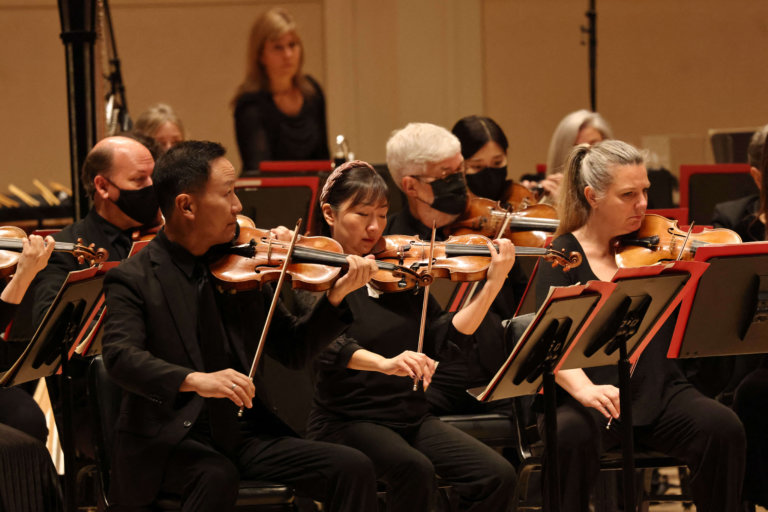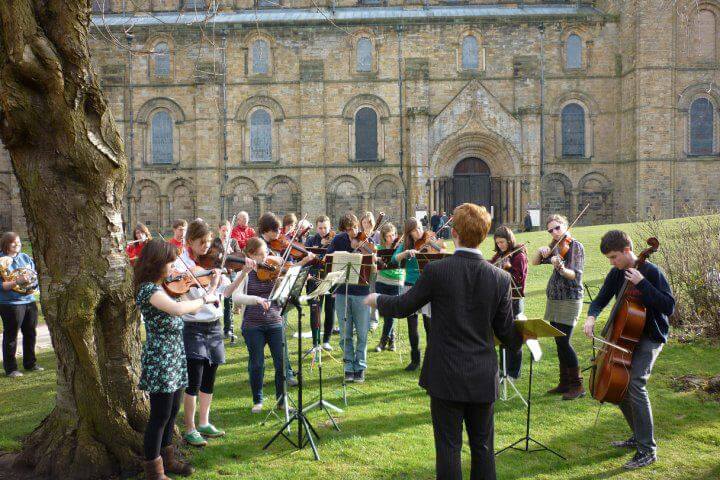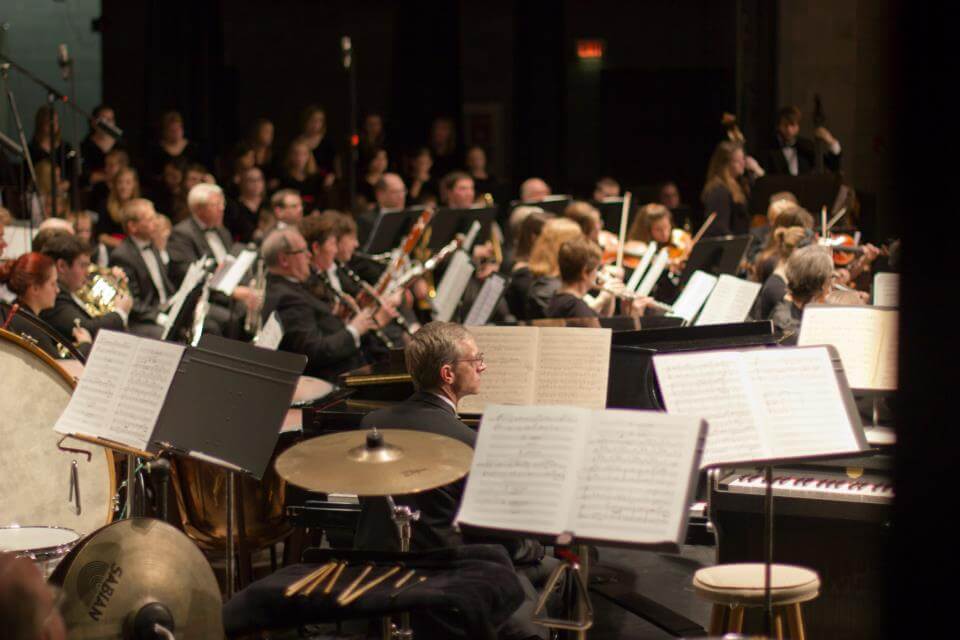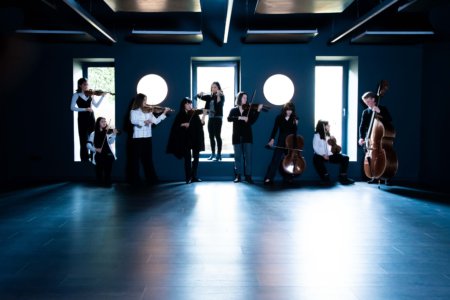
There’s no doubt that the UK is one of the world’s leading centres for music and culture. It’s home to a vibrant arts community, one that celebrates both tradition and modernity. On top of that, it’s been a leader in changing the global music scene as we know it. Some of the most successful names have originated from the UK — The Beatles, Queen, Coldplay, Adele, Jorja Smith.
That’s not to take away from the UK’s classical music scene. The London Symphony Orchestra boasts the country’s — and the world’s — greatest musicians, playing for festivals, operas, and some of the greatest film soundtracks. For musical theatre enthusiasts, there’s also London’s West End, which is comparable to Broadway in flair and ambition.
Beautiful theatres, creative minds, and an encouraging society — it’s certainly an inspiring and fulfilling place to be for any musician.
With all of this combined, it’s no wonder that aspiring musicians from all over the world flock to the UK to further their careers in music. Many of them start in one of the country’s many renowned music schools, conservatoires and training academies.
Here are some institutions with the best music degrees the UK has to offer.

Durham University’s Music Department is the top-rated in the country. Source: Durham University Music Department Facebook
Durham University
Working in an ever-changing field, musicians are inherently innovative, plucking from the early strings of Mozart to the powerful timbres of the late Amy Winehouse. It’s just as necessary to listen and learn as it is to develop one’s own sound — and Durham University’s BA Music programme offers plentiful opportunities for this.
Durham’s Department of Music has been rated the UK’s top music department for four years running by the Complete University Guide. The Guardian University Guide has ranked it first in the country for music, and is known internationally for its research expertise. It resides in the heart of a UNESCO World Heritage Site, providing for an inspirational backdrop that cultivates creativity.
This naturally means that everything students learn is up-to-date and moving with the developing music scene. Students are taught a variety of topics such as critical theory, composition (acoustic and electroacoustic), ethnomusicology, and performance, among others.
They also have the added benefit of learning from a network of staff specialising in 19th and 20th century British music, music of the Soviet Union, musical life in France and Germany, Korean and Indian music, popular music, conducting, music technology, and more.

Students at Manchester have access to world-class facilities and live performances. Source: University of Manchester Music Department Facebook
The University of Manchester
The University of Manchester has already established itself as an institution that is respected the world over. Its Music Department is similarly revered. Residing just below Durham on the league tables, it boasts an impressively large and diverse faculty, enabling them to offer a wide range of courses and musical experiences without compromising on specialist expertise.
One of these is the BA Film Studies and Music, a unique programme that examines the development of film culture and explores the interaction between music and film.
Students can tailor their programme according to their interests, have opportunities for a placement year of study, and are given 18 hours of one-to-one practical tuition on top of that. Many go on to pursue careers in TV, radio, film, music, broadcasting, or the wider arts and cultural industries sector.
Above all, however, the Manchester Music Department places a great emphasis on performance. The Martin Harris Centre for Music and Drama hosts over 100 live music events each year, with lunchtime performances every Tuesday and Thursday. Students have access to state-of-the-art 8.2 million pound facilities, including award-winning electroacoustic composition studios.
Outside of classes, students can make music with the Manchester University Music Society, the largest student-run music society in the UK. That’s not to take away from Manchester city in itself, one that drives more professional music-making than any other UK city outside of London.

The Royal Academy of Music has graduated some of the world’s most successful artists/ Source: Royal Academy of Music Facebook
The Royal Academy of Music
The Royal Academy of Music (RAM) is a household name in the world of music. As the UK’s oldest conservatoire, the academy has graduated some of the most successful artists worldwide, including Elton John, Katherine Jenkins, and Annie Lennox. Most recently, graduate Jacob Collier won five Grammy awards, all by making music in his childhood bedroom.
This only goes to show the calibre of musical creativity in RAM’s talented community of students. They learn from the academy’s wide array of undergraduate and postgraduate courses spanning performance, conducting, composition, and research.
At RAM, students choose exactly what they want to specialise in. The four-year Bachelor of Music is divided according to what students are interested in — from vocals and concert performance to composition. Each instrument and area of study is supplemented by its own department, all whilst being supported by award-winning faculty members, many of whom are professional and active musicians and academics.
One aspect of RAM that students may be intimidated by is its traditional and seemingly rigid air. “In those days, the Academy meant classical music and nothing else – certainly no rock ‘n roll,” Elton John was quoted saying. “That was the devil’s music.”
However, he notes that the training was necessary to his success. “I never would’ve been able to write the songs I’ve written,” he adds.

The Academy of Contemporary Music boasts some of the most innovative music courses in the industry. Source: Academy of Contemporary Music Facebook
The Academy of Contemporary Music
The world of music isn’t always conventional — it’s guided by individuals on their own waves, each exploring and creating sounds that are constantly changing and evolving. For these driven minds, the Academy of Contemporary Music (ACM) is the place to go.
ACM is first and foremost dedicated to incubating potential and talent. With campuses in Surrey, London, and Birmingham, ACM offers specialist programmes in Music Performance, Songwriting, Electronic and Music Production, Business, Games Development, and more.
Many of these directly tap into the rapidly developing music scene, making studies relevant and up-to-date. After all, not many traditional music academies offer bachelor’s programmes with pathways in Rap and MC. Students get access to Europe’s largest recording facility, Metropolis Studios, which has produced music for over 70% of this year’s BRITs winners.
All the while, students are supported by a network of professionals that connects students to top-tier partners in the music and wider creative industries. There are also regular networking events, work placements, performance showcases and audition opportunities, where students can showcase their talent to music industry executives and gain first-hand feedback.
Still, students should know that ACM isn’t always listed on the league tables — though, of course, this isn’t always important in the music industry.
***
This is a non-exhaustive list. For more music degrees UK, here are some of the UK’s other top-rated institutions you can consider:










